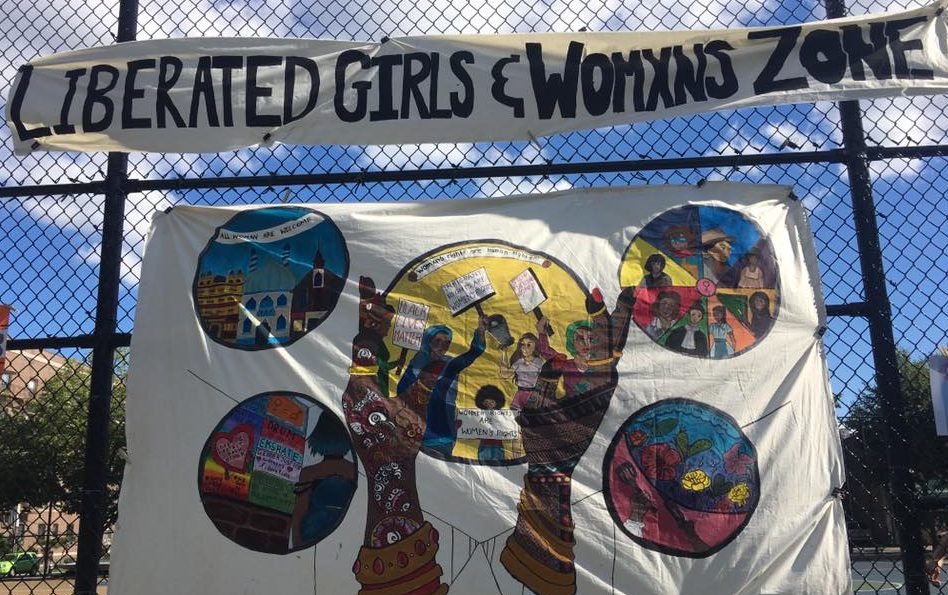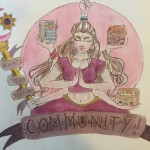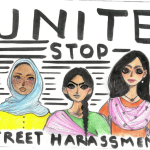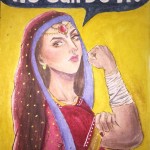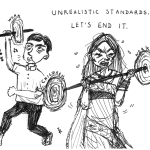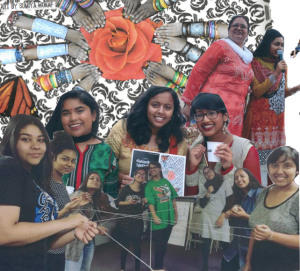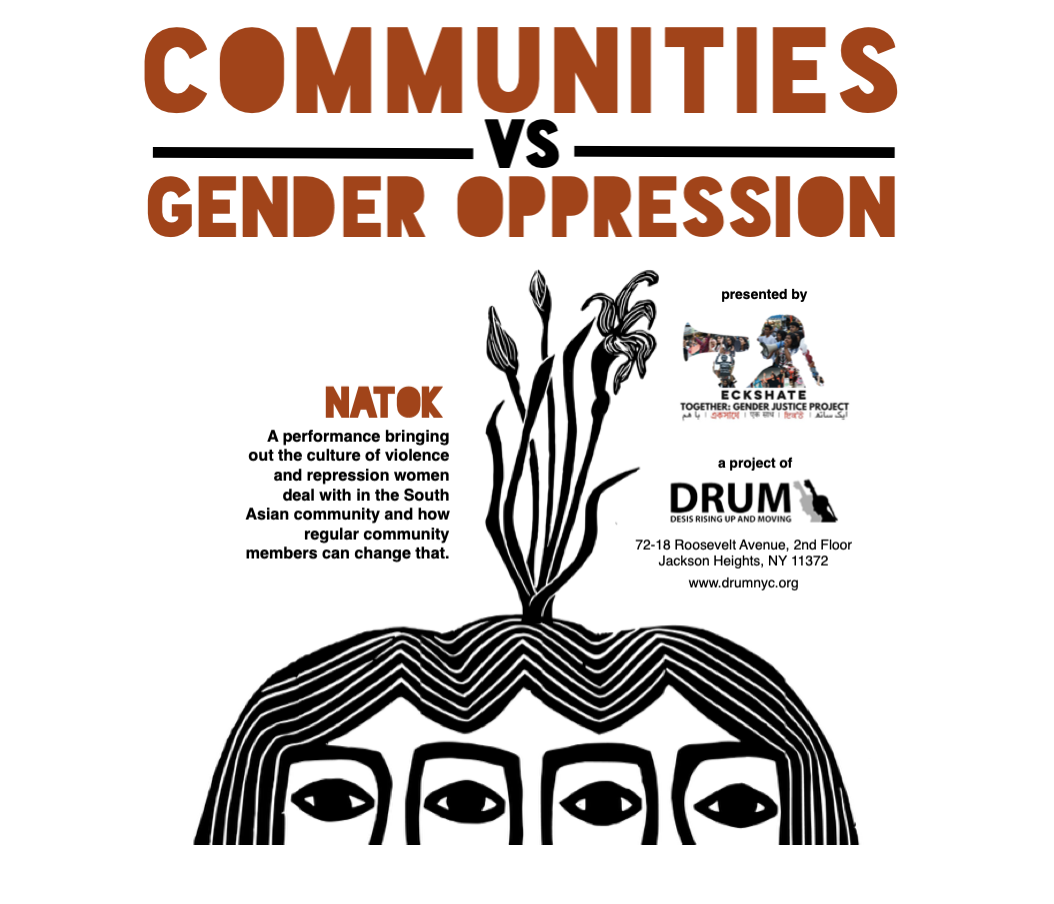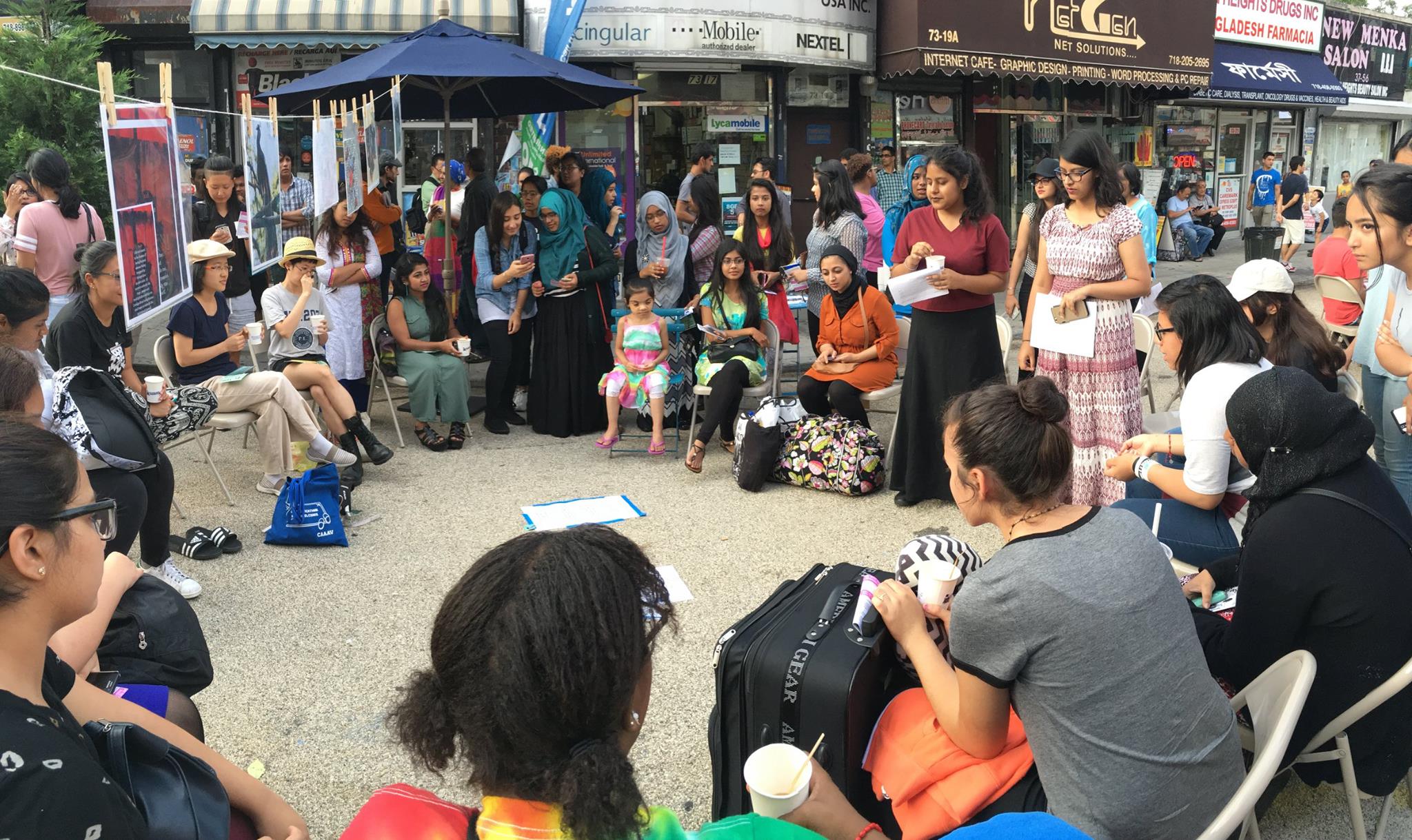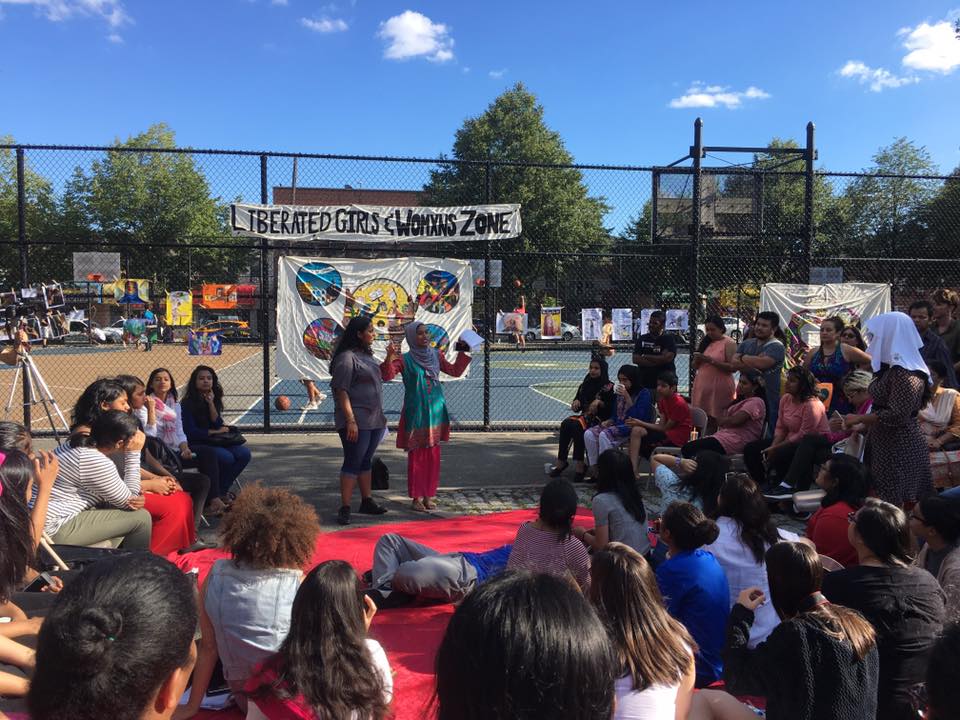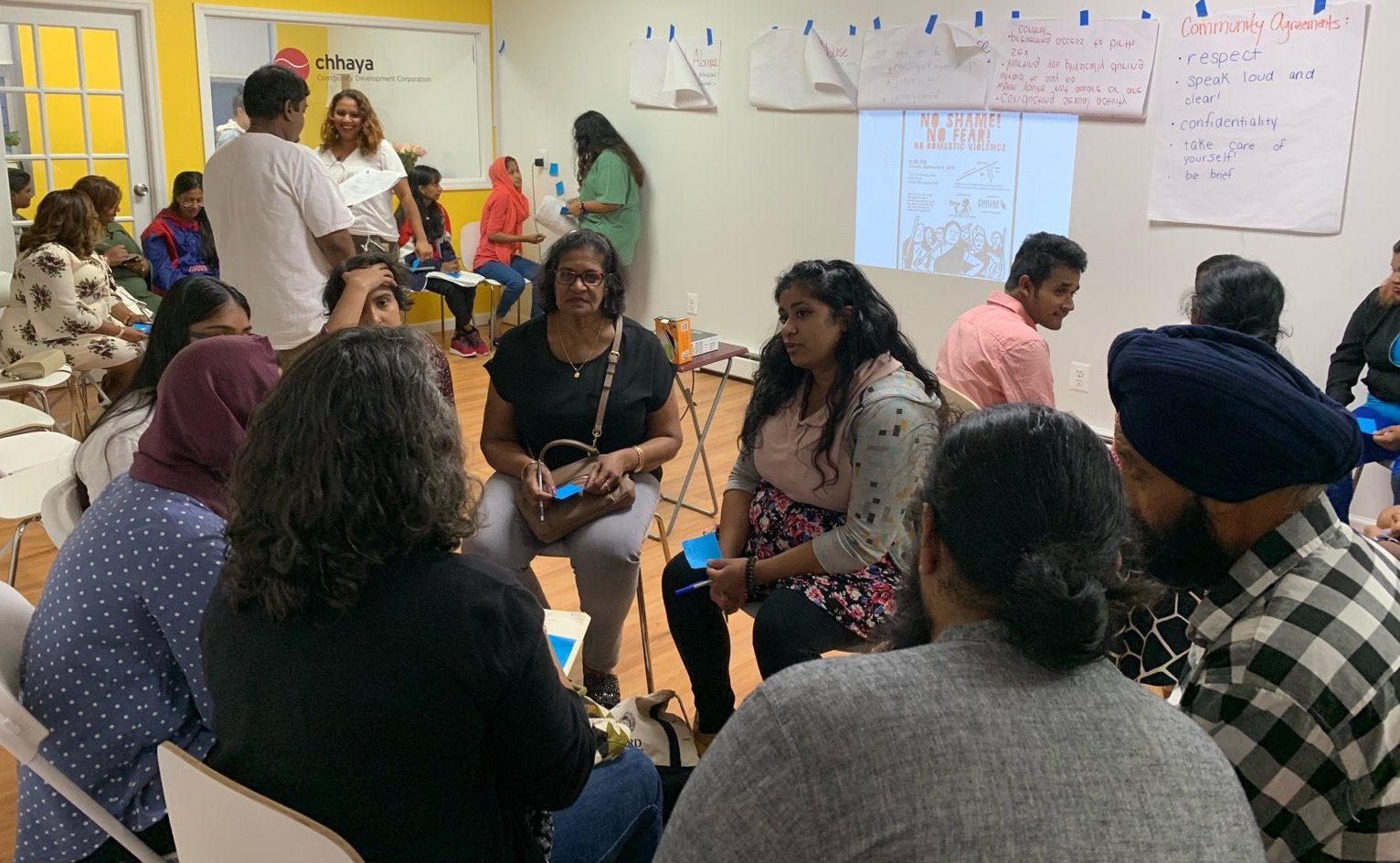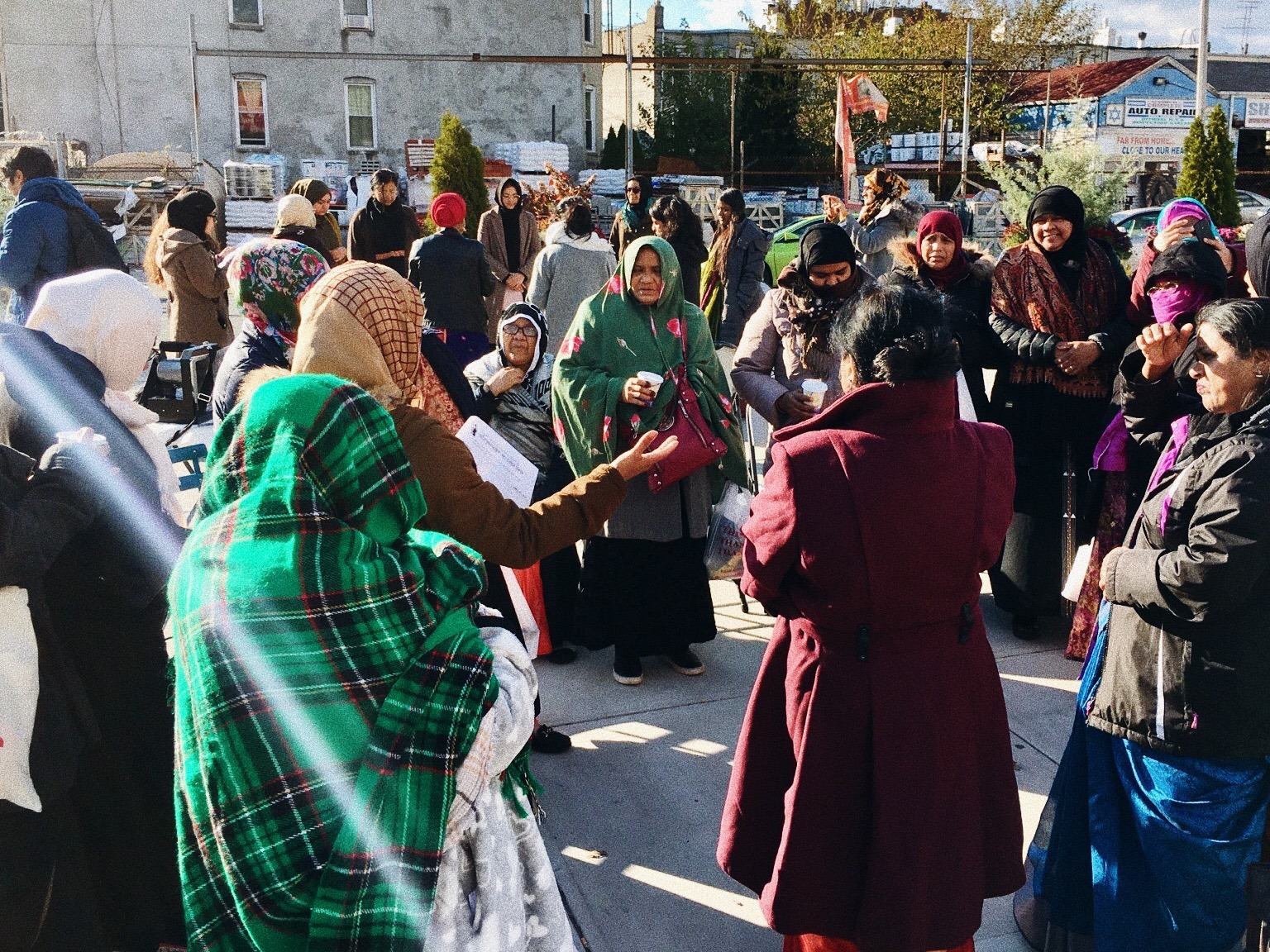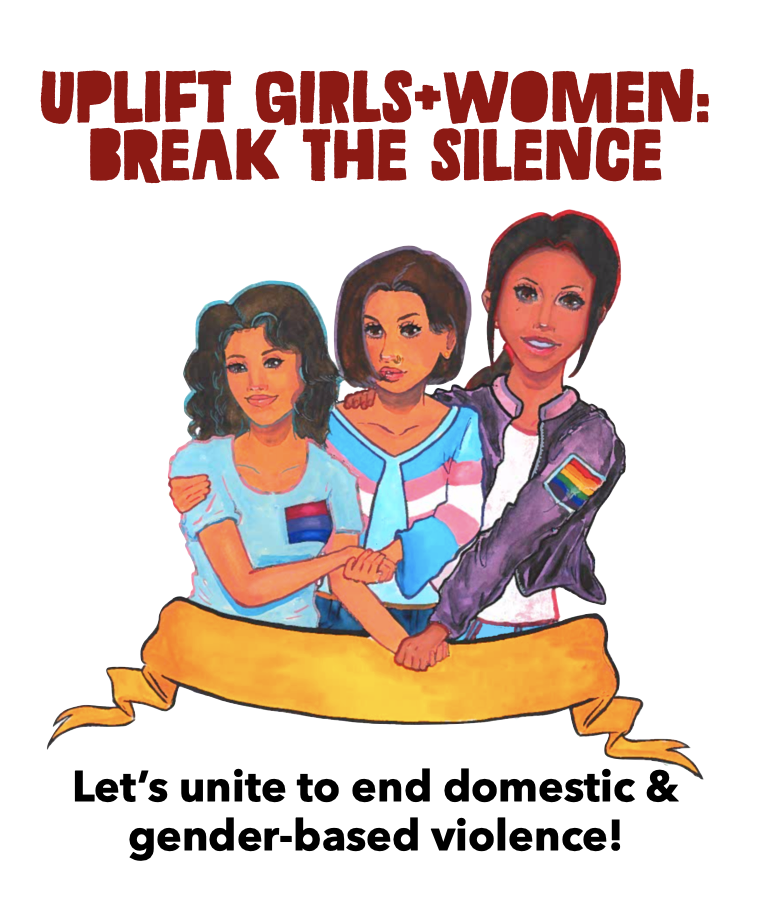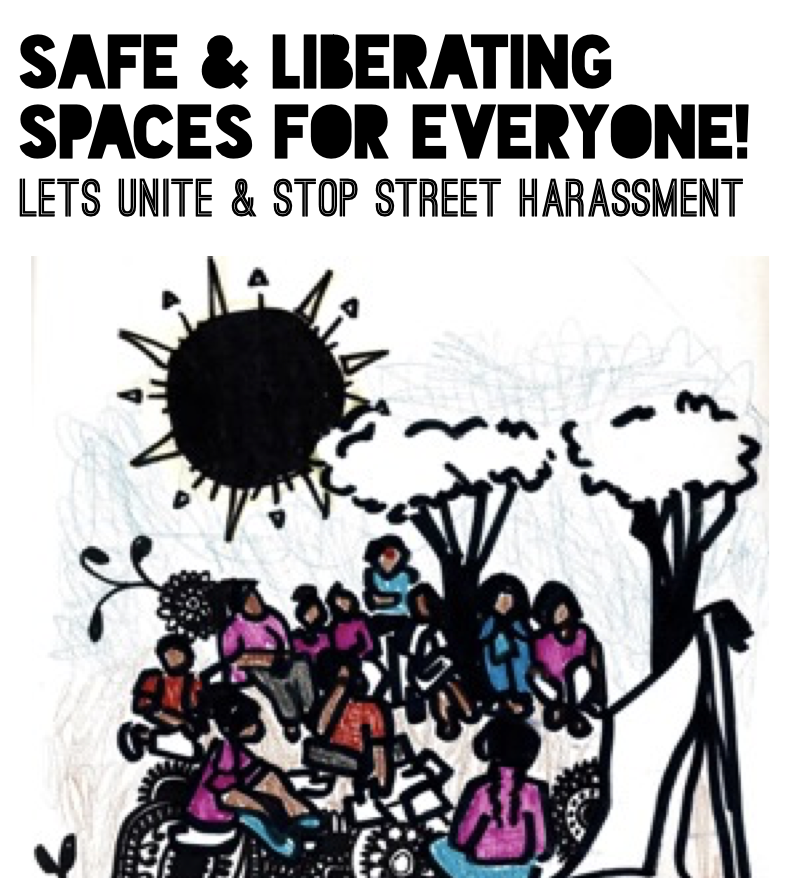"Despite the number of struggles working-class South Asian & Indo-Caribbean women have to go through — we are still surviving. We form powerful communities, organizations, and collectives where we come together with our struggles and resist by surviving and fighting for justice. There are so many of us who have for years been in the front lines of fighting for justice interracially in matters of deportations, police violence, and war."
-Jensine Raihan, Gender Justice Organizer 2015-2016 & 2018 - Present
Eckshate builds a mass base within DRUM made up of women, men, and gender non-conforming members of our community who organize the communities they are in to fight for gender justice.
Eckshate means “together” in a number of South Asian languages. The program was developed by a young woman leader who identified that though our organization is led by women and girls, the gender-based oppression that women and girls deal with on a daily basis was not addressed in DRUM’s organizing work. Moreover, there needed to be a gender justice lens in the way DRUM conducts all of its campaigns. We pay attention to and address the particular ways immigration and law enforcement affect women and the experience of repression, policing and violence women face in our homes and on our streets.
Since 2016, Eckshate has spearheaded a new model of engaging working-class communities around issues of gender justice - through the annual Dhaba. Dhaba is a Punjabi term for a roadside cafe in India and Pakistan, a public space usually dominated by men. The Eckshate Dhaba flips the male-dominated public space on its head; it's a neighborhood-wide women led initiative to reclaim public space for working-class women by engaging different sectors of our communities around womens' liberation, and building community through art and culture.
Currently, the Eckshate program seeks to build the cultural, political, and people power to transform our society into a feminist one. We do this on a number of fronts:
- Interpersonal level: we develop community infrastructure to intervene in day-to-day situations of harassment, abuse and violence
- Cultural level: we challenge the cultural notions that encourage us to stay silent and complacent in the face of gendered violence and oppression. This is the terrain in which we build the cultural power to compel people to transcend the patriarchal roles they have been socialized into, inspire them to intervene in instances of gender injustice, and establish the rights of women, girls, and nonbinary people to take up space in our neighborhoods. We do this through street theater and other cultural projects.
- Political level: we fight, as gender justice leaders, to build a system that:
- supports shared reproductive labor,
- encourages survivors to get out of abusive relationships by providing them resources they need to defend themselves and survive,
- provides comprehensive sex education in secondary school, and
- doesn’t discriminate against girls and queer youth regarding their clothing in schools.
Organizers
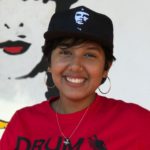
Jensine Raihan became a member of DRUM in 2013 when she was active in educational justice campaigns. She agitated for explicit gender justice programming within DRUM, drafted a proposal for Eckshate, and implemented the program with 18 other young women in 2016. Jensine participated in Escola Nacional Florestan Fernandes, the national school of Brazil’s Movement of Landless Peasants (MST—Movimento dos Trabalhadores Sem Terra) and learned from the indigenous movement in Ecuador and Paschim Banga Khet Major Samity (Union of Agricultural Workers in West Bengal) in India. This experience allowed her to come back to the Eckshate program in 2018 and implement cultural and militant organizing. Upon returning she began developing the Eckshate program regionally in DRUM bases using strategies such as street theater, public workshops, community-based intervention, and ongoing engagement of women across DRUM's membership bases.
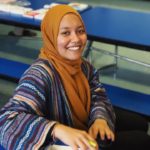
Shahrin Azim is a young Bangladeshi women who joined DRUM in 2019 as a member. She worked closely with the Eckshate program was instrumental in developing our Gender Justice work in Kensington, Brooklyn with elder and young women. She documented the experiences of women and helped to organize a public workshop in the middle of Kensington utilizing audio of the experiences of women in the community. Prior to DRUM, Shahrin was a regional director with Malikah where she trained young muslim women in self defense. She currently is DRUM's Youth and Gender Justice Organizer.
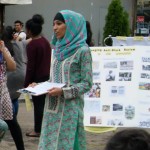
Talia Arif was DRUM's Gender Justice Organizer in 2017 -2018. As organizer, Talia led a second cohort of Eckshate in organizing the Dhaba in Elmhurst Park. As a DACA recipient, Talia became involved in DRUM's campaigns for admin relief and led the 2015 annual Youth Organizing Institute as a summer fellow. Talia worked with 20 other young women to create an intergenerational space for the 2017 dhaba that used art and culture to bring people of all ages together to take action on gender justice. In the words of Talia, "Part of the aim of Eckshate is to address the barriers women face to organizing, including pressure from their families not to stay late at meetings, have social contact with boys or men, or be in rowdy public places, like street protests. I feel like everything that I’ve experienced as a Muslim undocumented young woman led me to be here doing this work."
Our Work
Since 2016, Eckshate has developed a 2 pronged approached to the Gender Justice work focused on making (1) Cultural Shifts and (2) Community Based Intervention.
CULTURAL SHIFTS: The Eckshate program utilized strategies to shift cultural norms, practices and beliefs in our communities
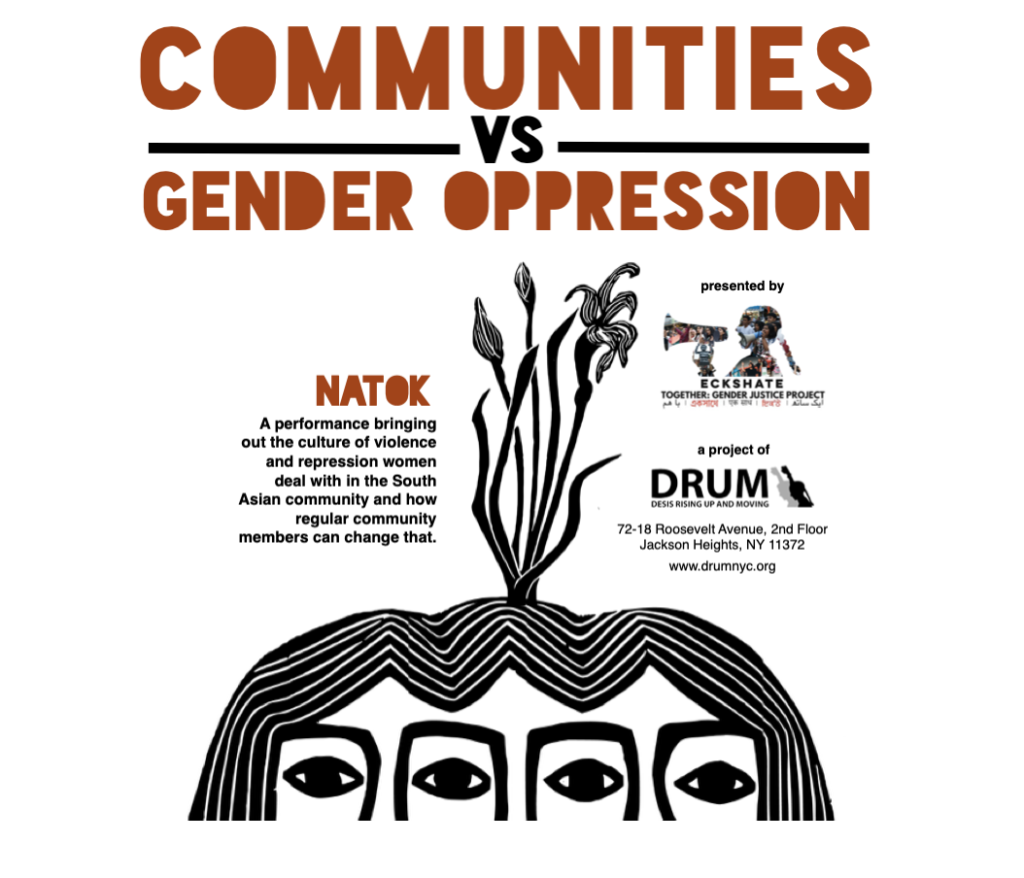
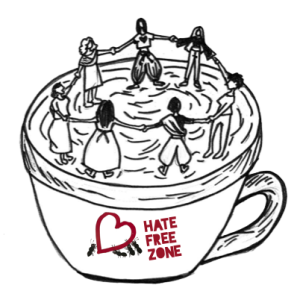
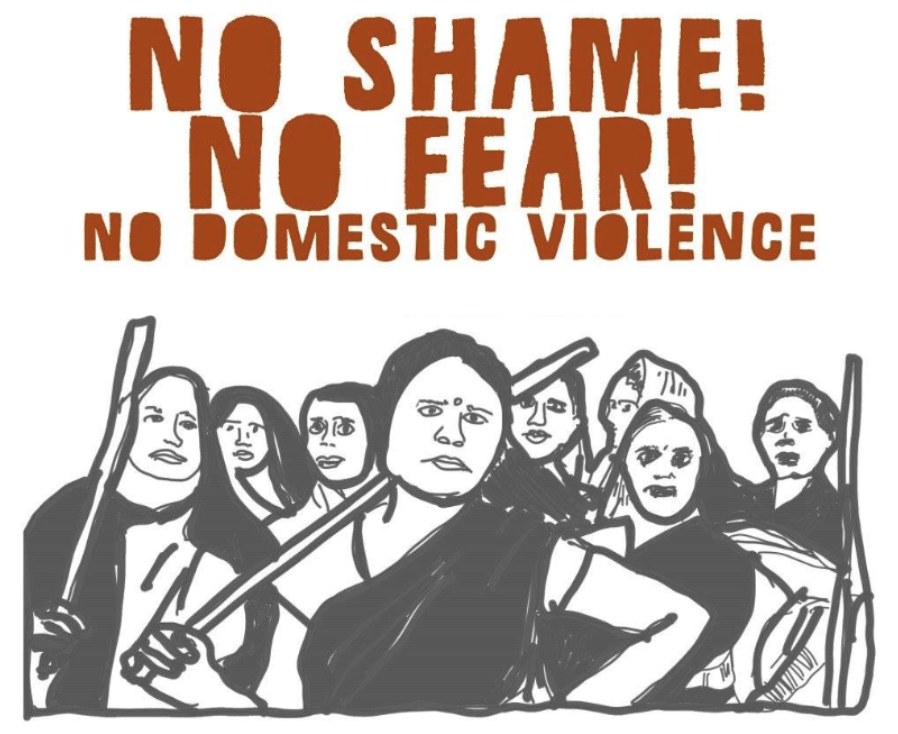
COMMUNITY INTERVENTION: The Eckshate program utilize strategies to intervene in cases of Gender Based Violence in our communities.
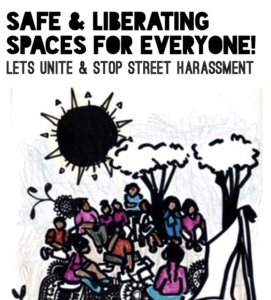
Anti- Street Harassment Campaign - Our leaders and members engage the broader communities we are in through outreach to understand how they can identify street harassment and the things they can do when they see it or face it.
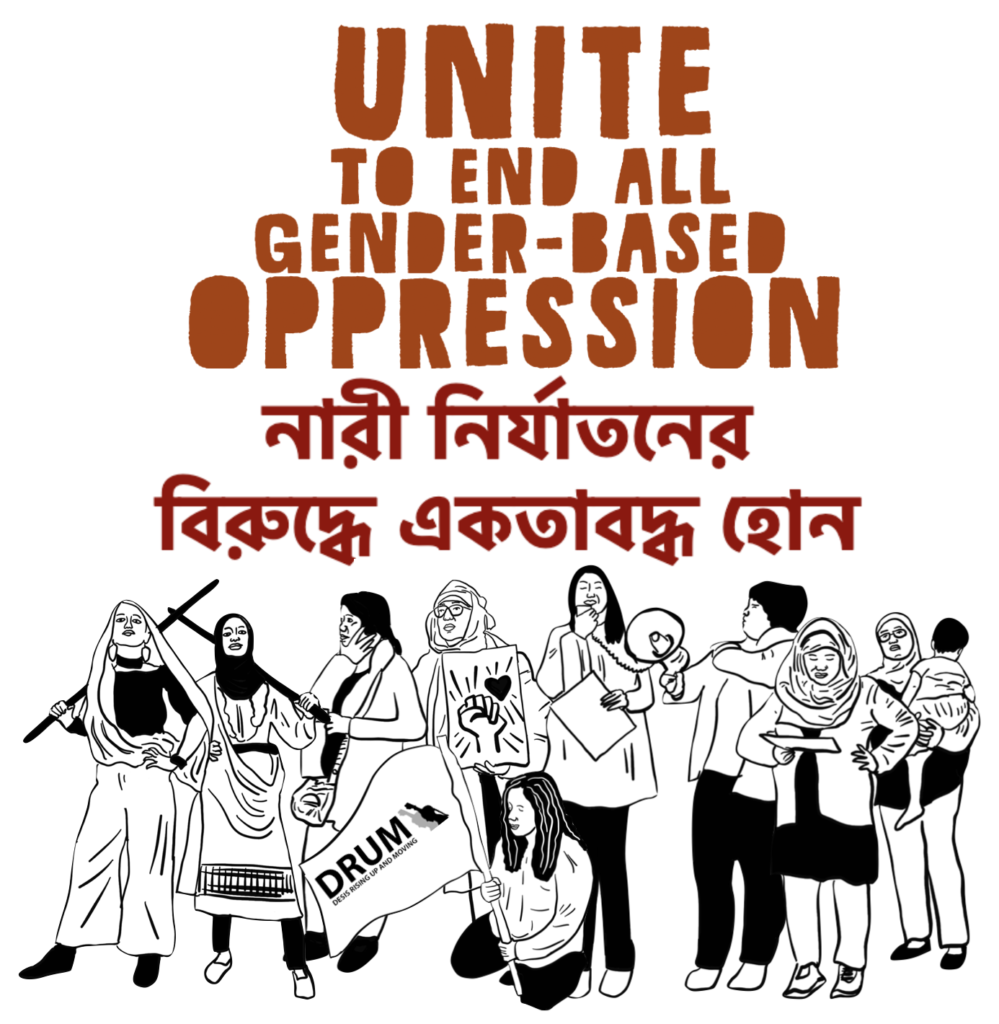
Community Based Intervention - Our community-based intervention work trains our gender justice leaders to intervene in situations of oppression, violence, or abuse between couples, family members, and community members in order to defuse and reach an agreement that is satisfactory to all parties. This requires knowing how to de-escalate a situation, mediate a sensitive, private, and potentially violent situation, counseling, and how to follow up and make sure agreements are adhered to.
Resources
Get Involved in Building Working-Class Womxn's Power!
If you're a young working-class Indo-Caribbean or Desi womxn in NYC:
If you want to support young womxn's leadership:
If you want to build a Liberated Girls & Womxn Zone in your community:

At the 2017 Eckshate Dhaba, photographs of the hands of Eckshate member's mothers, friends, and community members were displayed to represent the labor - both physical and emotional - women do with their hands everyday.

